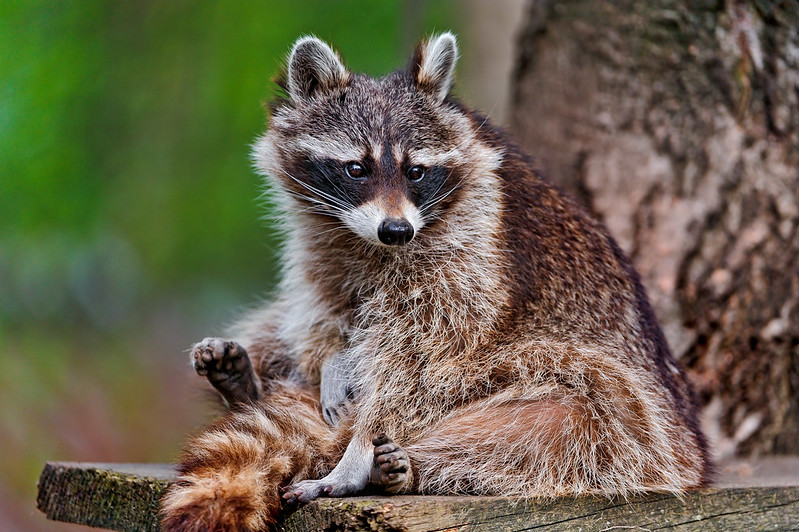A Washington woman has made an unusual call to 911 after returning home to discover a huge group of raccoons blocking her entry from the house.
Group of raccoons take advantage of homeowner’s hospitality
For 35 years, she had been feeding these masked creatures without incident at her Poulsbo residence, she told Kitsap County Sheriff’s deputies when they arrived.
However, six weeks ago, the raccoon population “exploded” on the property and got out of control.
Now, around a hundred of them are camped outside her home day and night, “demanding food,” according to the Kitsap County Sheriff’s deputies.
The woman explained to the deputies, that the “normal raccoons are nice, but the new ones scare her.”
These critters show up and refuse to leave until they’re fed, persistently scratching at her windows and walls at all hours.
She has since resorted to tossing food to them just to be able to get out of the house when she needs to leave.
When deputies arrived, they were astonished by the sheer number of raccoons gathered in one place.
The woman was finally able to get out of her car once deputies arrived on scene.
Group of raccoons profiled by the sheriff’s
Kevin McCarthy, a spokesperson for the sheriff’s office, noted, “Somehow the word got out in raccoon land, and they all showed up at her house expecting a meal.”
He added, “Nobody ever remembers being surrounded by a swarm of raccoons. This was a first.”
While there haven’t been any reports of bites or scratches from the raccoons, which can carry rabies and roundworm, the woman’s neighbors aren’t thrilled with the abundance of wildlife.
“I’d say it’s been about the last month or so I’ve noticed it,” neighbor Wendy Cronk said about the huge increase of masked-rodents in the area.
“I’ve had several raccoons in the yard recently. My dogs have gotten in a scuffle several times with a raccoon,” she noted.
“I’ve even had to take one of my dogs to the vet after tussling with a raccoon,” Cronk added. “And I’ve also noticed there’s been a lot more hit raccoons up on the main road here.”
Cronk hopes someone can help resolve the situation and that the woman will stop feeding them.
“Hopefully she’ll quit doing it,” she remarked.
Getting rid of the unwanted furry guests is a challenge
The woman had contacted a trapping group but balked at the $500 fee per raccoon, which would cost her around $100,000 to get rid of the problem.
The Kitsap County Sheriff advised that she should reach out to the Washington Department of Fish and Wildlife instead.
Though the raccoons have been arriving in droves, they haven’t caused any significant damage.
“At this point, it’s been determined that the raccoons haven’t committed any crimes,” McCarty added cheekily.
“It’s pretty simple: Don’t feed wild animals. When wild animals have a reliable food source, they’re going to keep coming back to it,” he said seriously.
“And that’s what these raccoons did until the number of raccoons expecting a meal got out of hand.”
Bridget Mire, the Department of Fish and Wildlife spokesperson, echoed McCarthy’s advice against feeding wildlife.
She warned that congregating animals could spread diseases, lose their natural fear of humans, and attract predators that might pose a danger to people.






